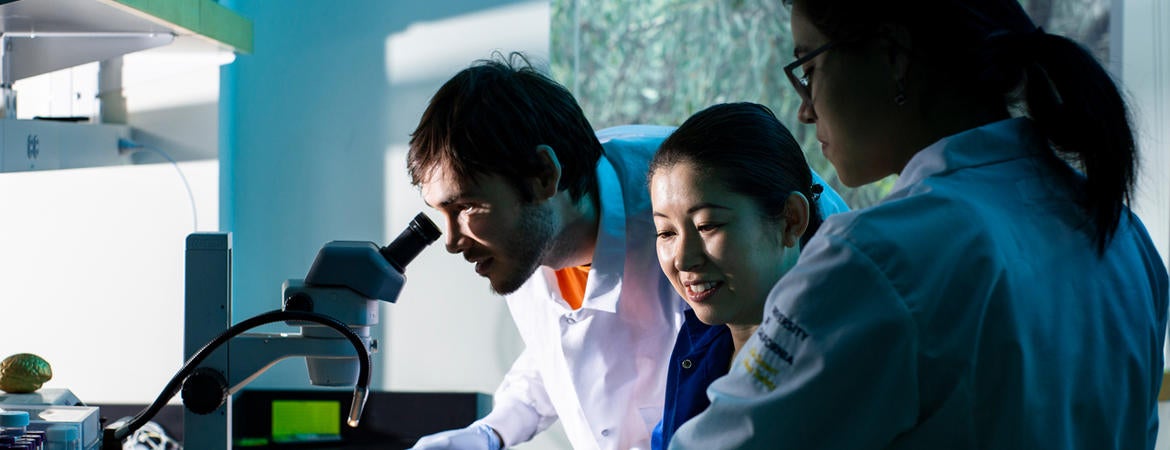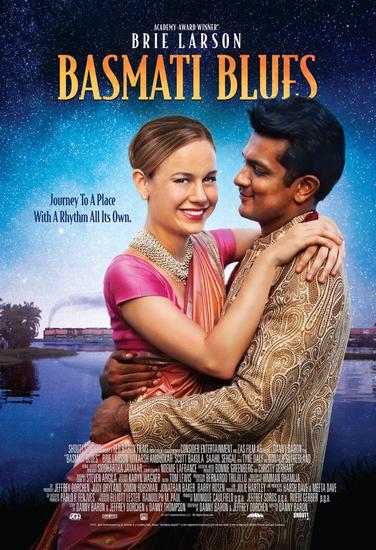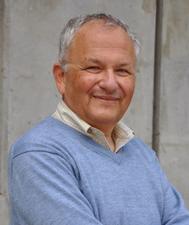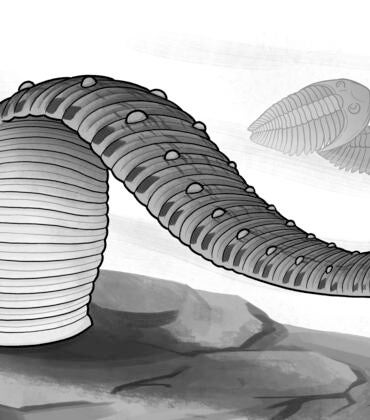
The film “Basmati Blues” is a musical romantic comedy about two about people who reach across cultures and find love. It also has a serious side: a U.S. agriculture company selling its genetically modified rice to Indian farmers.
The film, which is directed by Danny Baron and produced by Monique Caulfield and Jeffrey Soros, is being released in select U.S. theaters and on Video on Demand starting Friday, Feb. 9, 2018. It received funding from Sloan Science & Film, a branch of the Sloan Foundation that supports filmmakers who create narratives about science and technology.
“Basmati Blues” follows the journey of a young female scientist, Dr. Linda Watt (played by Academy Award winner Brie Larson), who is sent by her company’s CEO (played by Donald Sutherland) to India to sell farmers the GMO rice created by the company. As the story plays out, Linda navigates a new culture, a new love interest, and the realization she has unknowingly become part of a destructive plan against the farmers.
To ensure the science in “Basmati Blues” was portrayed accurately, the Sloan Foundation turned to Norman Ellstrand, a distinguished professor of genetics at UC Riverside and an expert on gene flow between GMO and non-GMO plants. It was Ellstrand’s first opportunity to serve as a scientific adviser in the movie industry.
“Reading an early version of the script and commenting on the science was fun because the writers had done an excellent job with the science, right down to the scientific name of the plants,” Ellstrand said. “I learned later that the writers and the producer were science fans. In discussing the script, we quickly got ‘into the weeds’ of agronomy, talking about plant reproductive systems, molecular biology, and what role scientific nuance should—or should not—play in a romantic musical comedy.”
On screen, Linda’s relationship with a farmer called Rajit (played by Utkarsh Ambudkar) takes a somber turn when he informs her that, instead of helping local farmers, she is unwittingly hurting them. The GMO seeds Linda has developed are sterile, meaning that plants grown from them have lost the ability to reproduce and farmers have to buy new seeds for each planting.
The plot is a fictional exploration of real-world issues including globalization, innovation, personal responsibility, and food security. Many of the world’s largest agrochemical firms hold patents on the technology behind sterile seeds (which are also called suicide or terminator seeds), but large-scale protests about their impact on farmers’ self-sufficiency have hindered their commercial development.
“Companies create new kinds of seed for farmers to grow and harvest for people to eat, which can be a mutually beneficial relationship,” Caulfield, the movie’s producer, said in an interview with The Sloan Foundation. “However, if the only goal of a company is to maximize profit how does that affect the more vulnerable farmers and populations? In between the company CEO and the farmer is the scientist. We wanted to explore their role.”
The film was shot over the course of several years in India and New York City, and features original songs by global artists Pearl Jam, Kristan Bush (of Sugarland), Sid Khosla (of Goldspot), Dave Baerwald, and Sonu Nigam. For more information on the film, including theater locations, visit the “Basmati Blues” website.





